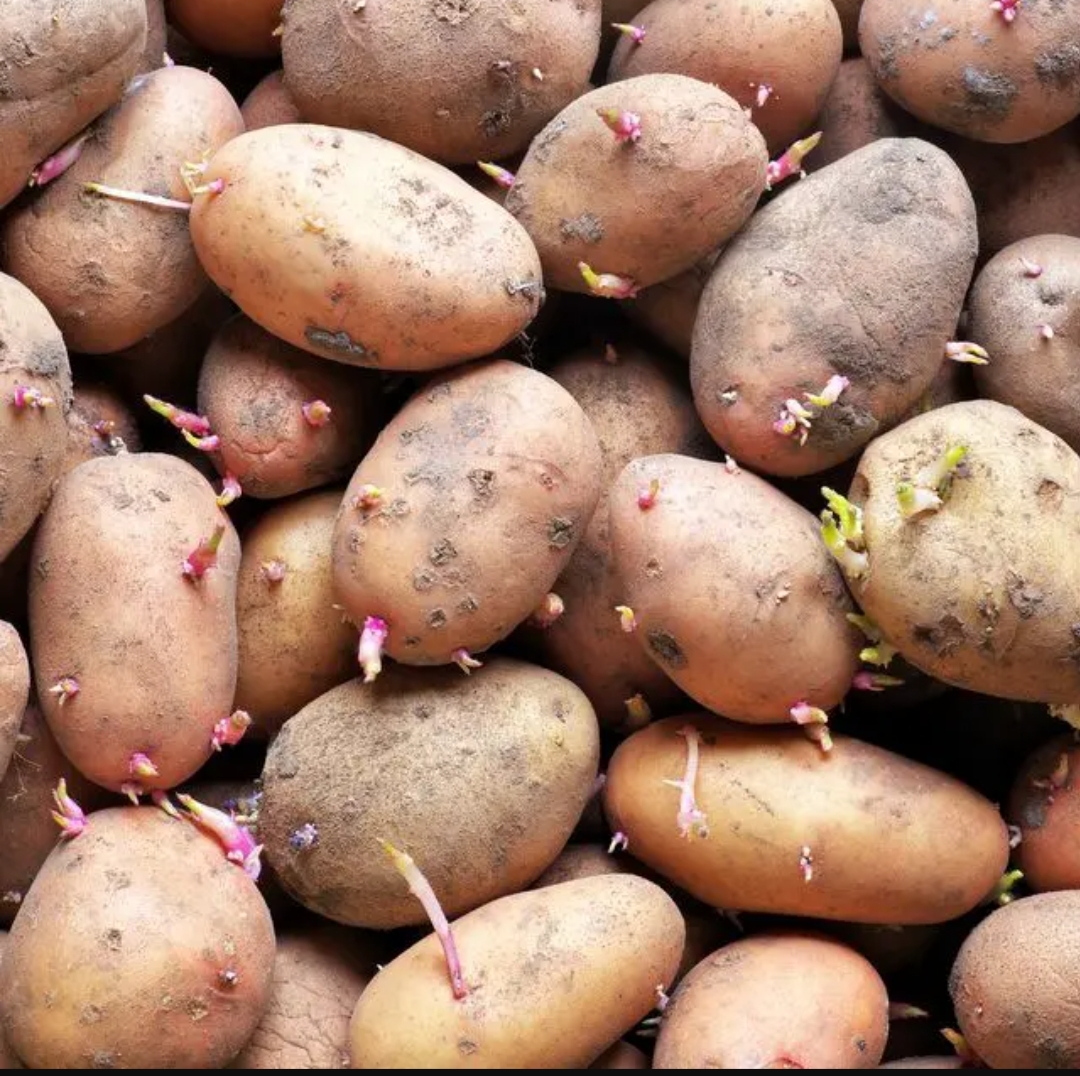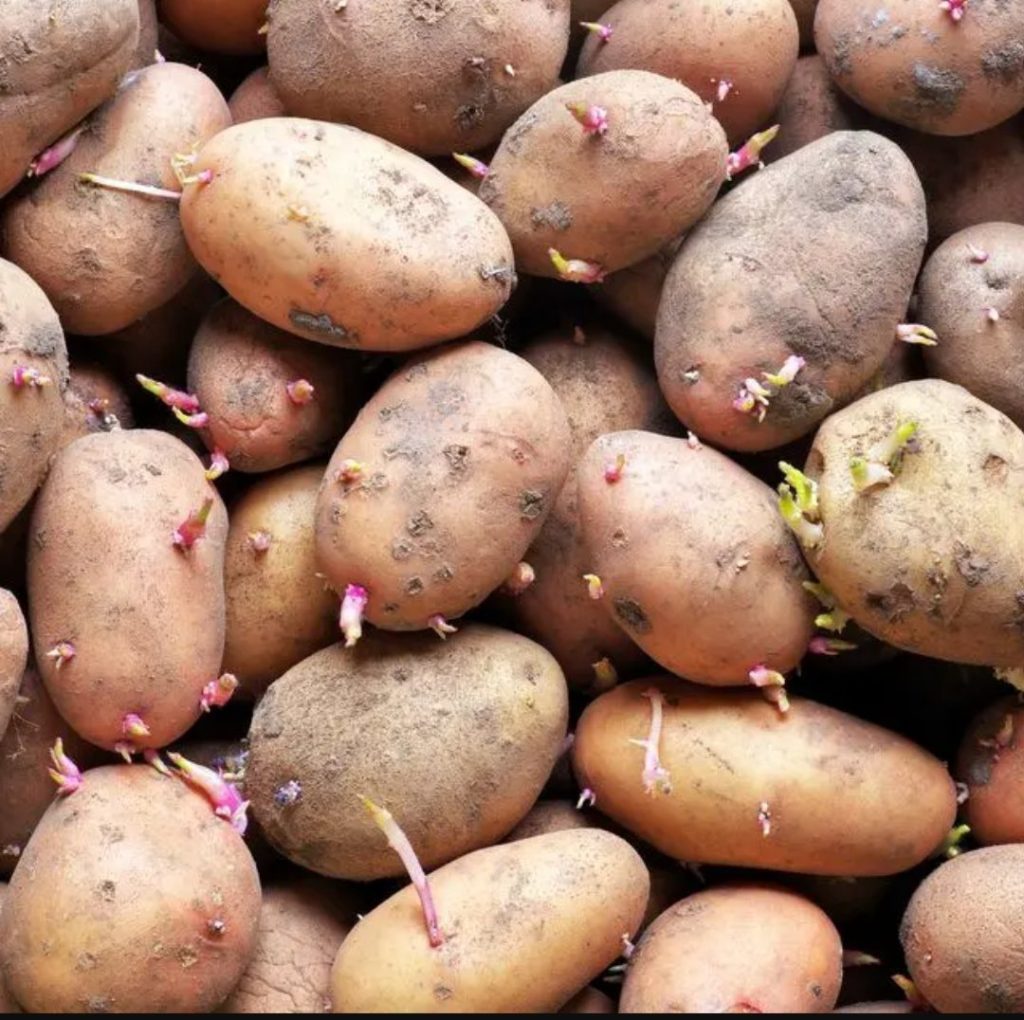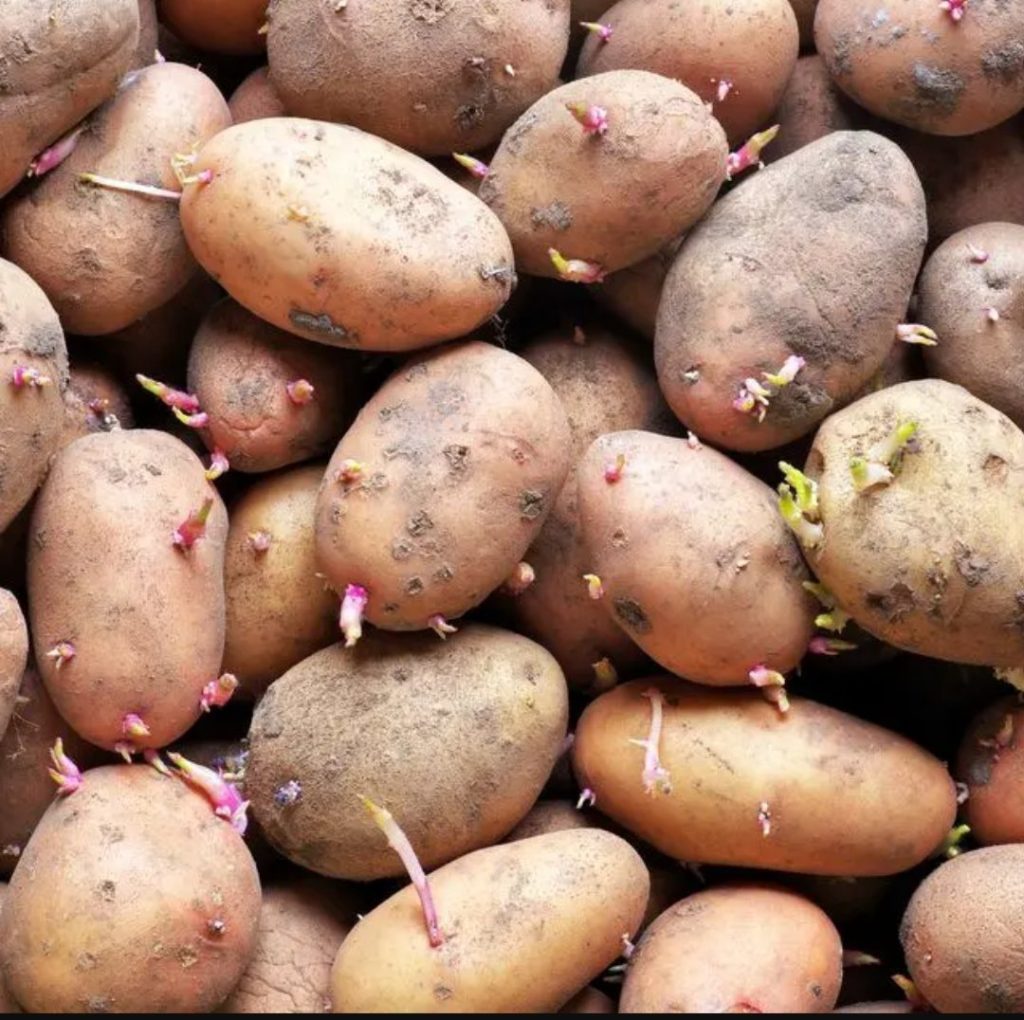
Potatoes are a staple food in many cuisines, and they can be prepared in various ways, from mashed to baked to fried. But what if you find some green sprouts on your potatoes? Are they still safe to eat, or should you throw them away?
As reported by Taste of Home on December 13, 2023, the answer is not so simple. Sprouted potatoes are not necessarily bad, but they do pose some health risks if not handled properly. Here are some facts and tips to help you decide what to do with your sprouted spuds.

Potatoes are tubers, which means they are underground stems that store energy for the plant. When potatoes are exposed to light, moisture, or warm temperatures, they may start to sprout, forming small buds or “eyes” on their surface. This is a natural process that allows the potato to grow new plants.
However, sprouting also affects the quality and safety of the potato. Sprouted potatoes tend to lose moisture and nutrients, and they may develop a bitter or earthy taste. More importantly, sprouted potatoes may contain higher levels of toxins that can be harmful to humans.
All potatoes contain two natural toxins called solanine and chaconine, which are part of the plant’s defense system against pests and diseases. These toxins are mostly concentrated in the potato skin, sprouts, and eyes, but they can also be found in the flesh, especially near the surface.
Solanine and chaconine can cause gastrointestinal and neurological symptoms, such as nausea, vomiting, diarrhea, abdominal pain, headache, fever, and even hallucinations.
The severity of the symptoms depends on the amount and type of toxin ingested, as well as the individual’s sensitivity. Some people may experience mild discomfort, while others may require medical attention.
The amount of toxins in potatoes varies depending on the variety, growing conditions, storage methods, and cooking methods. Generally, the longer and more extensively the potatoes sprout, the higher the toxin levels. Exposure to light, especially sunlight, can also increase the toxin production. That’s why potatoes may turn green when left in bright places.
The best way to prevent potatoes from sprouting is to store them in a cool, dark, and dry place, such as a pantry or a cabinet.
Avoid storing potatoes in the fridge, as the low temperature can cause the starches to convert to sugar and produce dangerous chemicals when cooked. Also, keep potatoes away from onions, as the gases from those vegetables can speed up the sprouting process.
If you buy potatoes in bulk, consider storing them in a breathable, cotton storage bag that allows air circulation and prevents moisture buildup.
If you do find some sprouts on your potatoes, you may still be able to salvage them by cutting off the sprouted areas with a kitchen knife or a potato peeler. Make sure to remove any green or dark spots as well, as they may indicate high toxin levels.

However, if the potatoes are very sprouted, shriveled, or wrinkled, it’s better to discard them. Follow the same food safety rules with sprouted potatoes as with any other aging produce: When in doubt, throw it out.
According to the National Capital Poison Center, it’s best to throw away potatoes that have already sprouted, as they may contain unsafe levels of toxins.
Peeling potatoes before you cook them can also help to reduce the amount of toxins you’re exposed to. However, cooking may not completely eliminate the toxins if the sprouts are not removed. And we certainly don’t recommend eating raw potatoes, as they are hard to digest and may contain harmful bacteria.
Sprouted potatoes are not always a cause for alarm, but they do require some caution and care. By following these tips, you can enjoy your potatoes without risking your health.





Cut the potatoes up and plant them to get a fresh crop later in the tearz